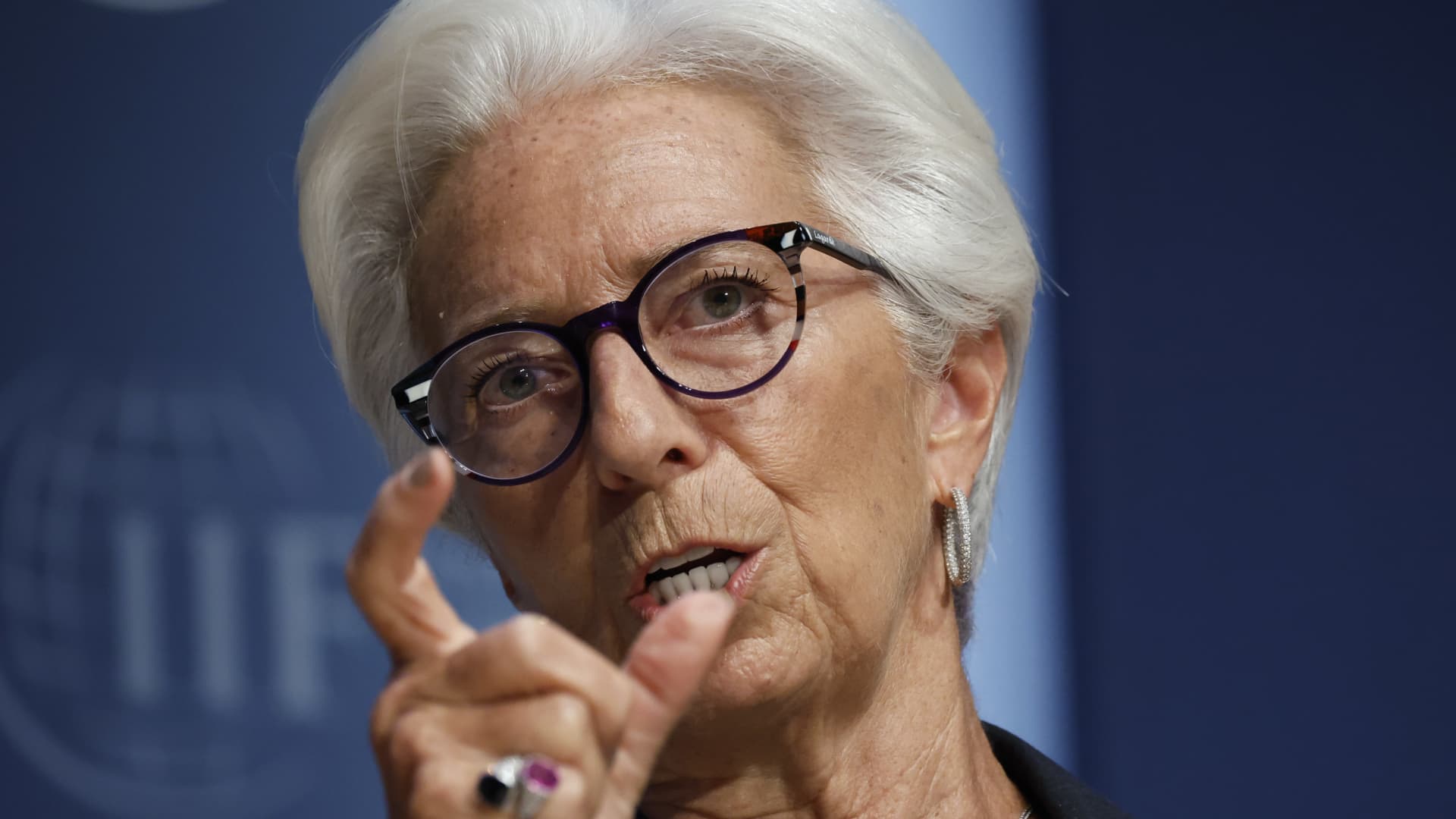European Central Bank set for 50 basis point rate hike on hopes that inflation has peaked

Quantitative tightening, or QT, could see the ECB shrink its gigantic bond portfolio.
Bloomberg | Bloomberg | Getty Images
FRANKFURT, Germany — The European Central Bank will continue to hike benchmark rates, albeit at a slower pace, with inflation expected to be close to a peak and the Frankfurt institution looking to reduce its vast holdings of government bonds.
“We expect the ECB to raise its policy rates by 50 bp at the December meeting,” said Michael Schumacher, an ECB watcher with Natixis, in a recent research note.
“We also expect an announcement of Quantitative Tightening next year, though the ECB is unlikely to provide a specific start date at this point.”
Quantitative tightening, or QT, could see the ECB shrink its gigantic bond portfolio sitting on its balance sheet after years of government debt purchases and monetary stimulus.
“The governors meeting should be an opportunity to discuss the reduction of the balance sheet,” Franck Dixmier, a global CIO for fixed income at Allianz Global Investors, said in a note.
“We expect the ECB to take a very gradual approach to avoid market volatility shocks as the Governor of the Banque de France, Francois Villeroy de Galhau, recently stressed.”
Inflation peaked?
Another hot topic for the ECB’s Governing Council, which concludes its meeting Thursday with a press conference, will, of course, be inflation and possible peak inflation.
“While Inflation likely peaked in October, we see core inflation lingering above 5% until mid 2023 before trending lower,” said Anatoli Annenkov at Societe Generale in a recent research note.
And a lot of focus will also be on the staff projections despite recent criticism about the reliability of the forecasting models used for them. It is widely expected that inflation expectations from the ECB will be revised upward for 2023 and GDP estimates should be lowered for next year.
“It will be particularly interesting to see whether the ECB will have a technical recession in its baseline forecast,” Annenkov added.









